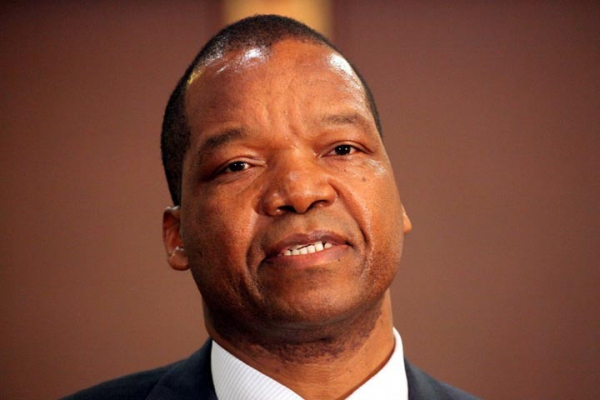
TAURAI MANGUDHLA RESERVE Bank of Zimbabwe (RBZ) governor John Mangudya says the country will this year be expediting the clearance of blocked funds to restore confidence in Zimbabwe as a safe investment destination.

Blocked funds refer to money generated in a country by a foreign entity or project but cannot be repatriated immediately because of capital flow restrictions, government regulations, or in Zimbabwe’s case, foreign currency shortages.
The funds in question relate to US$3,2 billion belonging to 580 companies, which has been trapped in Zimbabwe due to a foreign currency crisis that has rocked the country for decades.
Addressing a webinar to unpack the 2022 monetary policy statement (MPS) organised by the Zimbabwe Independent, in partnership with Zimbabwe Bankers Association (BAZ), Mangudya said payments had commenced.
Legislation has been promulgated to map a way for the crucial process and to show commitment, the RBZ governor said.
“We incurred a bill of almost US$3,2 billion or so,” Mangudya told the webinar.
“These are not government bills but private sector transactions which could not be processed by banks ending up with blocked funds because we were mixing foreign currency and virtual currency.
So there was not enough liquidity to remit or to expunge these transactions. That is why they are called blocked funds.
- Chamisa under fire over US$120K donation
- Mavhunga puts DeMbare into Chibuku quarterfinals
- Pension funds bet on Cabora Bassa oilfields
- Councils defy govt fire tender directive
Keep Reading
“The funds have been blocked in Zimbabwe and the government and ourselves, as the RBZ, are coming up with instruments to ensure that Zimbabwe is honouring those.
This is money that belongs to the foreigners,” Mangudya said.
He said the Finance Act 7 of 2021 had now incorporated blocked funds in the Act and it is now an Act of Parliament.
“We now have both, the legal form of these blocked funds which is the Finance Act 7 of 2021 and the second one is the substance that we have developed some schedules of the repayment for expunging these blocked funds.
Some of them, which are very critical, are being paid as we speak, and so there is now a pathway that has been put in place,” added Mangudya.
“We want to pay our foreign obligations and this is a commitment from the government and the RBZ.
That is why it’s the law of the land of Zimbabwe.”
Zimbabwe has struggled to attract foreign direct investment (FDI) inflows due to factors including its inability to help foreign firms repatriate dividends and other funding forms due to foreign currency shortages.
This has compounded a crisis that has seen the country accumulate over US$13 billion in foreign debt.
The debt, which represents about 70% of the country’s gross domestic product, raised concerns from Zimbabwe Coalition for Debt and Development, which this week said it was unsustainable.
Policy inconsistency and lack of respect for property rights have also affected FDI inflows.
But Mangudya said the RBZ would be playing its part in addressing these problems.
BAZ backed the RBZ MPS, which it said had addressed several key issues affecting the financial services sector.
“From the banking perspective, we welcome the governor’s Monetary Policy Statement since it touches on key economic fundamentals and as an industry, we are grateful that the central bank continues to dialogue with us on crucial monetary issues that affect banks and the economy at large,” BAZ said.
“The MPS was well received by the banking industry and it is encouraging to hear from the governor who is the author.
Normally, when you hear from the author, you get to get privy information out of the document.
“The governor has touched the interest rate policy and it has been maintained at the same level.
To us, this is a very positive move in the sense that the cost of borrowing to our clients is also maintained at the same level because this rate is what bankers normally use as a reference rate when they lend money.
“We want to talk about promoting the use of domestic currency through broadening transactions where the currency is used such as with the payment of royalties and part payments of duties and taxes in local currency.
“This is a very bold and important move in the sense that this increases demand for the local currency and the market has been crying for this move,” added BAZ.






